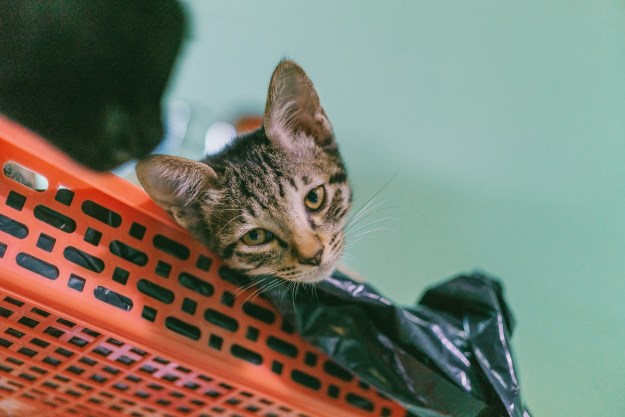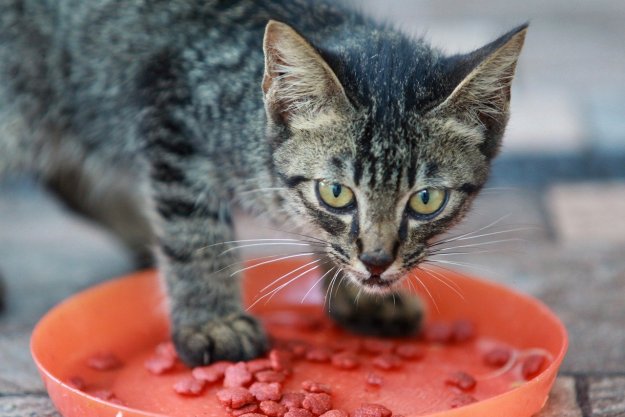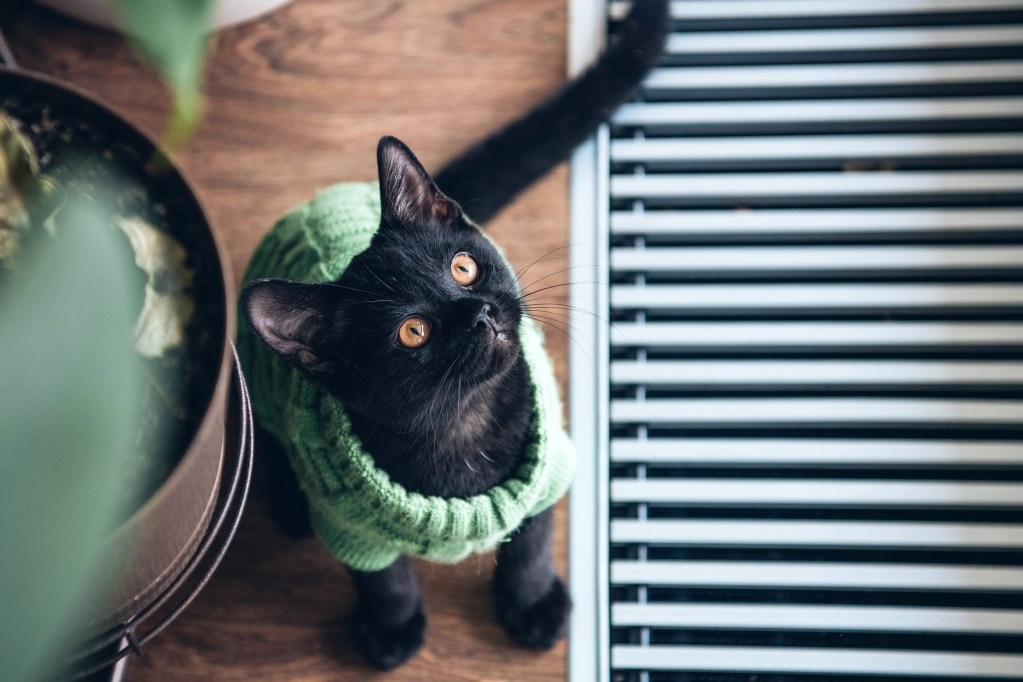
You’ve seen all the photos of adorable cats in clothing. Sweaters, vests, jackets — the options are endless, and the cats are irresistibly cute. They also look cozy and ready for cold weather — but is this clothing necessary? While buying your cat’s winter ensemble might be tons of fun, you could be getting into more trouble than you expect.
Could cat clothes be uncomfortable or restricting your cat’s movement? Do cats in winter actually need clothes to stay warm, or is their fur enough? We’ll answer all your questions so you can be confident dressing your cats up – or not – this winter season!
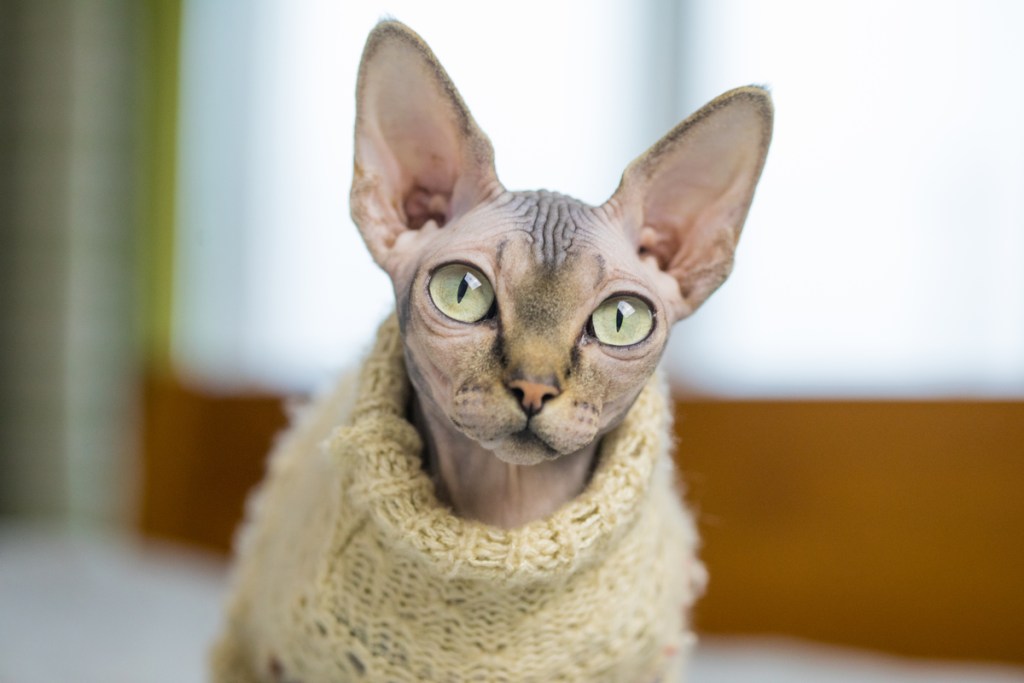
Do cats need winter clothes?
Before you start building your cat’s winter wardrobe, it’s important to understand how your cat’s body works. Your cat’s natural coat insulates him against the cold, helping to keep him from getting chilly when the temperature drops during the winter months.
Adding cat clothes on top of that could actually cause your cat to overheat. If your cat has a normal, healthy coat, he doesn’t need winter clothes unless you’re going to be taking him outside into significantly cold weather.
There are a few exceptions. A cat who has no coat, such as one who’s recently been shaved for surgery, may benefit from a clothing layer in the winter. Hairless cats may also find a layer of clothing helps keep them more comfortable, but there also are several environmental changes you can make to keep your hairless cat cozy — more on that in the end.
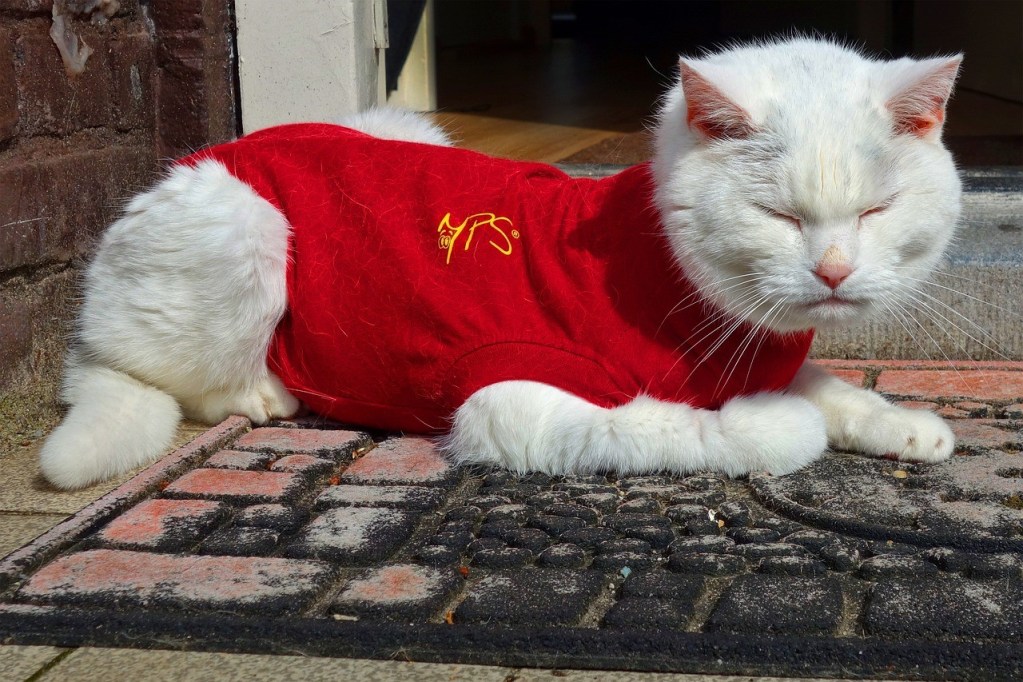
The risks of cat clothes
If your cat doesn’t absolutely need clothes, it’s best to avoid them because clothes can pose safety risks. Clothing can restrict your cat’s ability to move, and clothing that doesn’t fit properly can make your cat uncomfortable.
Clothing also creates a potential hazard because it can easily catch on objects, like trees and furniture. This could lead to injuries to your cat. Keep in mind that cats are also skilled at getting out of their clothing, so your cat’s clothes might repeatedly go missing.
Some cats just don’t take well to wearing clothes, and clothes can be stressful for them. Gradually and carefully introducing clothes can help minimize this, but it’s still important to monitor your cat’s emotional comfort to make sure the clothes aren’t causing more issues than they’re solving.
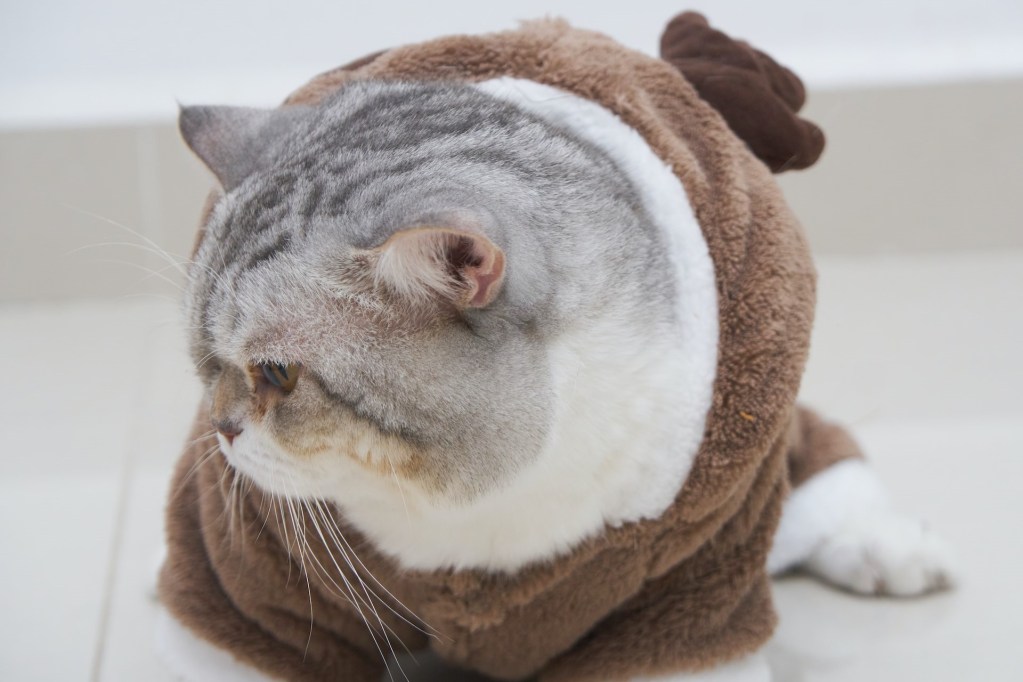
Strategies to keep your cat warm
Clothes aren’t an ideal way to keep your cat warm, but you have plenty of other practical solutions.
Start by keeping the temperature in your home consistent. Avoid turning the thermostat down when you leave for work, especially during significantly cold weather. By keeping the temperature in your home where it’s comfortable for you, your cat will be comfortable, too.
Consider getting your cat a heated bed if you want to keep him extra cozy. This gives him a special spot to curl up when he’s feeling chilly. A fully enclosed cat bed can also make for a toasty haven where your kitty can stay warm.
Even more importantly, avoid taking your cat outside when the weather gets cold. Temperatures at and below freezing can be dangerous for cats, especially for those who are older or who aren’t in good health. In these instances, it’s best to keep your cat indoors. If you have to take him to the vet, warm up your car first so you can quickly move him from one warm location to another.
You can also look for signs that your cat is cold. Shivering and curling up in a tight ball can indicate that he is uncomfortable and it’s time to turn up the heat.
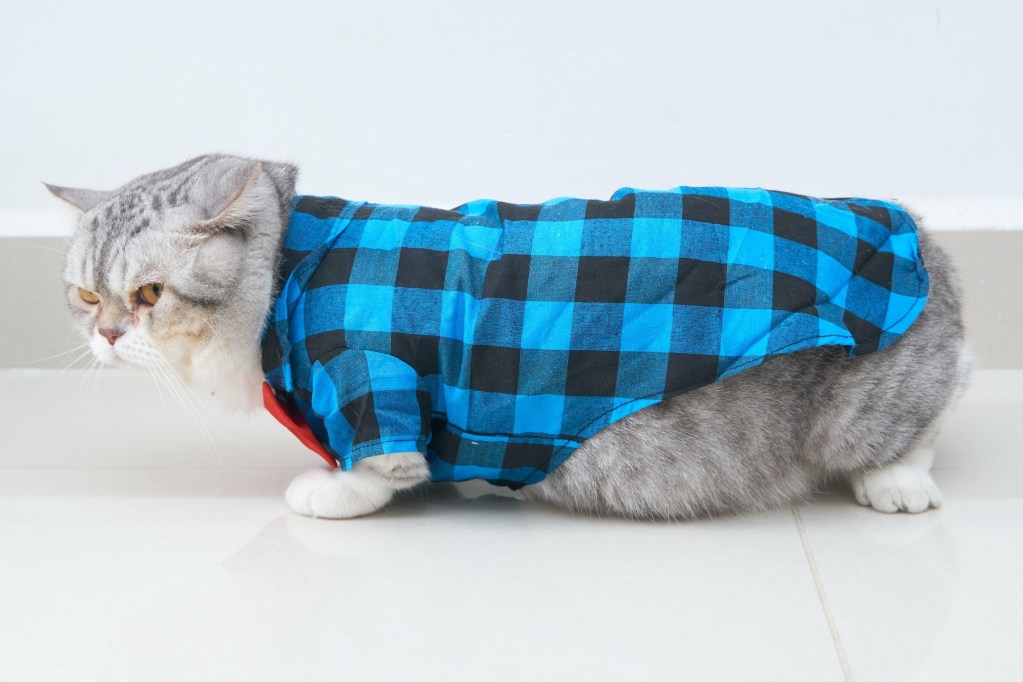
Do cat clothes help with anxiety?
You might be familiar with the idea of a thunder shirt, which makes dogs feel less anxious during thunderstorms. Can cat clothes serve a similar purpose for your anxious kitty? They may help some cats feel more comfortable, but most cats are not likely to feel better when wearing a sweater. In fact, the restrictive clothing may make them feel trapped, increasing their anxiety.
Instead, provide an easily accessible (and easy-to-escape) cave or shelter for your cat to hide in. Even something as simple as a cardboard box tipped on its side or a blanket laid over a table can help your cat feel more comfortable, without running the risk of upsetting your cat more.
While cats may look adorable in clothing, putting clothes on your cat isn’t the best solution for cold weather. Instead, it’s better to focus on more natural ways to keep your cat warm. Dealing with clothing can be full of problems, but simple strategies like using a heated cat bed require less vigilance and tend to be safer. That’s not to say your cat can’t ever wear a sweater, or that you have to throw out his wardrobe. Just keep those sweater-wearing sessions short and treat them more as photo opportunities than as long-term strategies to keep your cat comfortable.
Editors' Recommendations
- Why do cats knead, and is this behavior normal?
- Why do cats’ eyes dilate? What your pet’s extra big peepers mean
- Cats chirping at birds is totally normal (and here’s why you should encourage it)
- Why do cats twitch in their sleep? The real reasons behind this curious behavior
- Why do cats roll in dirt? 10 reasons for their dust bath

